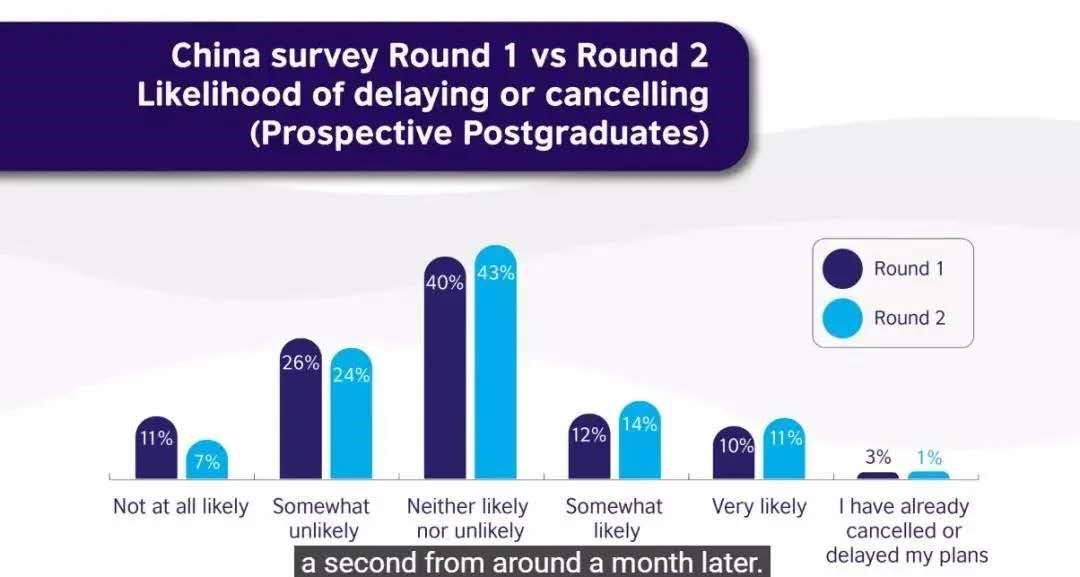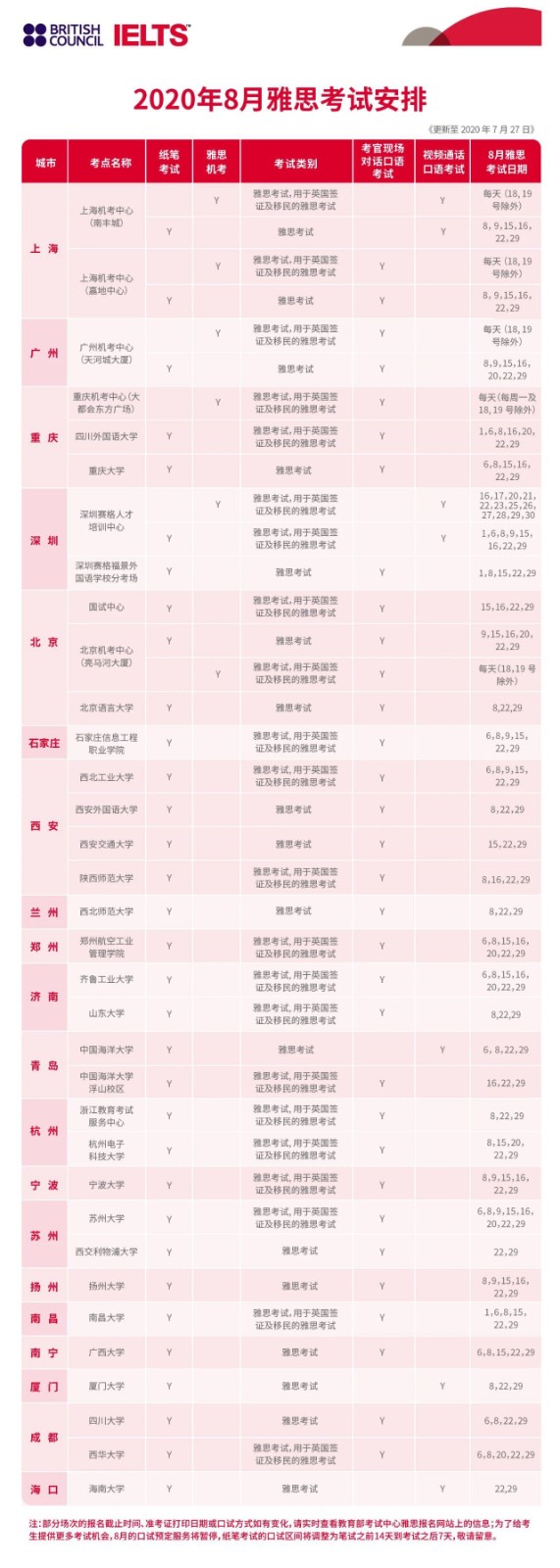GRE考试的分数系统和我们之前经历过的一些考试有很大的区别,今天小编给大家带来了最新GRE考试整体成绩和各部分计分方式满分要求汇总一览,希望可以帮助到大家,下面小编就和大家分享,来欣赏一下吧。
最新GRE考试整体成绩和各部分计分方式满分要求汇总一览
GRE考试计分方法和满分
GRE考试分数主要分为三个部分,语文和数学部分满分为170分,最小分值差为1分,作文部分满分为6分,最小分值差为0.5分。所以GRE考试的理论满分应该是170+170+6。由于作文一般不计入总分,所以满分为340分。
GRE考试数学和语文满分要求
GRE考试数学和语文部分要求达到满分,并不代表一题都不能做错,根据大量老师和考生的经验总结,数学部分一般错误题数在4题以内,都有机会拿到满分,而语文部分满分数据太少,目前的估计是容错率可能在1-2题左右。
GRE考试作文满分要求
GRE写作Issue满分ETS官方评分标准介绍
In addressing the specific task directions, a 6 response presents a cogent, well-articulated examination of the argument and conveys meaning skillfully.
A typical paper in this category exhibits the following characteristics:
1.articulates a clear and insightful position on the issue in accordance with the assigned task
2.develops the position fully with compelling reasons and/or persuasive examples
3.sustains a well-focused, well-organized analysis, connecting ideas logically
4.conveys ideas fluently and precisely, using effective vocabulary and sentence variety
5.demonstrates facility with the conventions of standard written English(i.e., grammar, usage and mechanics), but may have minor errors。
GRE写作ARGUMENT满分ETS官方评分标准介绍
In addressing the specific task directions, a 6 response presents a cogent, well-articulated examination of the argument and conveys meaning skillfully.
A typical paper in this category exhibits the following characteristics:
1.clearly identifies aspects of the argument relevant to the assigned task and examines them insightfully
2.develops ideas cogently, organizes them logically, and connects them with clear transitions
3.provides compelling and thorough support for its main points
4.conveys ideas fluently and precisely, using effective vocabulary and sentence variety
5.demonstrates superior facility with the conventions of standard written English (i.e., grammar, usage, and mechanics) but may have minor errors
总体来说,除了不同类型的作文特点需要达到标准,在词汇、语法和写作逻辑架构等基本作文构成部分上也提出了较高要求。
GRE考试备考词汇之高频形近词
131. faction / fiction / factitious / fictitious
faction: A faction is an organized group of people within a larger group, which opposes some of the ideas of the larger group and fights for its own ideas.
e.g. A peace agreement will be signed by the leaders of the country's warring factions.
factitious: produced by humans rather than by natural forces
fictitious: Fictitious is used to describe something that is false or does not exist, although some people claim that it is true or exists.
132. calamity / calumny
calamity: A calamity is an event that causes a great deal of damage, destruction, or personal distress. (FORMAL)(=disaster)
calumny: Calumny or a calumny is an untrue statement made about someone in order to reduce other people's respect and admiration for them. (FORMAL)(=slander)(污蔑,诽谤(的话))
133. team / teem
teem: If you say that a place is teeming with people or animals, you mean that it is crowded and the people and animals are moving around a lot. (=swarm)
134. callow / callous
callow: A callow young person has very little experience or knowledge of the way they should behave as an adult.
callous: A callous person or action is very cruel and shows no concern for other people or their feelings.
135. contrite / contrive / connive
contrite: If you are contrite, you are very sorry because you have done something wrong. (FORMAL)(= apologetic)
contrive: If you contrive to do something difficult, you succeed in doing it. (FORMAL)
connive: If one person connives with another to do something, they secretly try to achieve something which will benefit both of them.
136. discrete / discreet
discrete: Individually separate and distinct:
discreet: Careful and prudent in one’s speech or actions, especially in order to keep something confidential or to avoid embarrassment:
137. impressive / impressionable
impressionable : easily influenced
GRE考试备考词汇之高频形近词
121. substantiate / substantial / substance
substantiate: To substantiate a statement or a story means to supply evidence which proves that it is true. (FORMAL)
substantial: Substantial means large in amount or degree. (FORMAL)
122. rebuke / rebuff
rebuke: If you rebuke someone, you speak severely to them because they have said or done something that you do not approve of. (FORMAL)(责骂)
rebuff: If you rebuff someone or rebuff a suggestion that they make, you refuse to do what they suggest.
123. scatter / spatter
spatter: If a liquid spatters a surface or you spatter a liquid over a surface, drops of the liquid fall on an area of the surface.
124. tether / feather
tether: If you say that you are at the end of your tether, you mean that you are so worried, tired, and unhappy because of your problems that you feel you cannot cope.
To ruffle someone's feathers means to cause them to become very angry, nervous, or upset.
125. meander / demeanor
demeanor: Your demeanor is the way you behave, which gives people an impression of your character and feelings. (FORMAL)
126. myopia / myriad
myopia: Myopia is the inability to see things properly when they are far away, because there is something wrong with your eyes. (FORMAL)( =short-sightedness)
myriad: Myriad means having a large number or great variety.
127. disposition / predisposition
disposition: Someone's disposition is the way that they tend to behave or feel.(=nature)
A disposition to do something is a willingness to do it. (FORMAL)(=inclination)
predisposition: If you have a predisposition to behave in a particular way, you tend to behave like that because of the kind of person that you are or the attitudes that you have. (FORMAL)
128. accede / cede / recede / access
accede: If you accede to someone's request, you do what they ask.(FORMAL)
recede: If something recedes from you, it moves away.
129. congenial / congenital / genial /genesis
congenial: A congenial person, place, or environment is pleasant.(FORMAL)
congenital: A congenital characteristic or feature in a person is so strong that you cannot imagine it ever changing, although there may seem to be no reason for it.(= incorrigible)
genial: Someone who is genial is kind and friendly.
genesis: The genesis of something is its beginning, birth, or creation.(FORMAL)
130. figment / pigment
figment: If you say that something is a figment of someone's imagination, you mean that it does not really exist and that they are just imagining it.
GRE考试备考词汇之高频形近词
101. dismiss / remiss
remiss: If someone is remiss, they are careless about doing things which ought to be done. (FORMAL)
102. contend / consent / constant / content / contempt
contend: If you have to contend with a problem or difficulty, you have to deal with it or overcome it.
If you contend that something is true, you state or argue that it is true.(FORMAL)
If you contend with someone for something such as power, you compete with them to try to get it.
consent: If you give your consent to something, you give someone permission to do it. (FORMAL)
contempt: If you have contempt for someone or something, you have no respect for them or think that they are unimportant.
103. hunch / bunch / crunch
hunch: If you have a hunch about something, you are sure that it is correct or true, even though you do not have any proof of it.(INFORMAL)
crunch: If something crunches or if you crunch it, it makes a breaking or crushing noise, for example when you step on it.
If you say that something will happen if or when it comes to the crunch, you mean that it will happen if or when the time comes when something has to be done.
104. gauche / gaudy
gauche: If you describe someone as gauche, you mean that they are awkward and uncomfortable in the company of other people.
gaudy: If something is gaudy, it is very brightly-colored and showy.
105. meritorious / meretricious
meritorious: If you describe something as meritorious, you approve of it for its good or worthwhile qualities. (FORMAL)(联系merit)
meretricious: If you describe something as meretricious, you disapprove of it because although it looks attractive it is actually of little value. (FORMAL)
106. blithe / lithe
blithe: You use blithe to indicate that something is done casually, without serious or careful thought.
lithe: A lithe person is able to move and bend their body easily and gracefully.(=supple)
107. enclose / disclose
disclose: If you disclose new or secret information, you tell people about it.
108. compliment / complement
compliment: A compliment is a polite remark that you say to someone to show that you like their appearance, appreciate their qualities, or approve of what they have done.
complement: If one thing complements another, it goes well with the other thing and makes its good qualities more noticeable.
109. austere / astute
austere: If you describe something as austere, you approve of its plain and simple appearance.
astute: If you describe someone as astute, you think they show an understanding of behavior and situations, and are skilful at using this knowledge to their own advantage.(机敏;狡猾)
110. pretentious / tendentious / contentious
tendentious: Something that is tendentious expresses a particular opinion or point of view very strongly, especially one that many people disagree with. (FORMAL)
contentious: A contentious issue causes a lot of disagreement or arguments. (FORMAL)









 扫一扫支付
扫一扫支付


